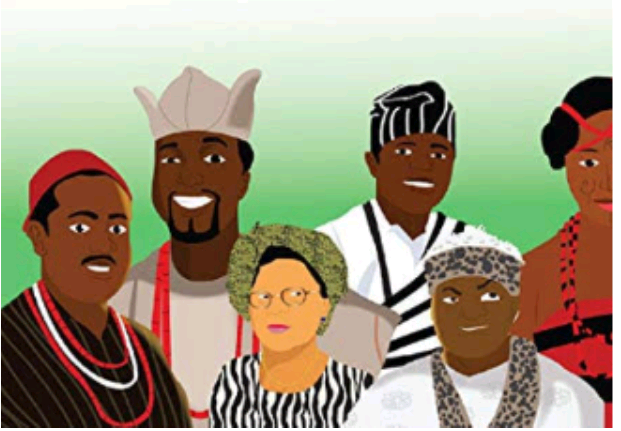In November 1999, the United Nations Educational Scientific and Cultural Organization (UNESCO) declared 21st of February the International Mother Language Day. According to the esteemed world body, this declaration was in recognition of:
‘… the role of languages in promoting inclusion and achieving Sustainable Development Goals.’
Furthermore, the United Nations stated that:
‘Multilingual education policies are crucial for inclusive education and the preservation of indigenous languages.’
This follows a discovery that speakers of many indigenous Nigerian languages often form a minority group of disadvantaged persons. This fact also holds true in other multilingual nations worldwide.
The effect is even more pronounced when checked against the backdrop of having between 350 and 550 indigenous Nigerian languages. The Endangered Language Report claims that about 172 of those languages are presently facing extinction. Yet again, another report states that speakers of local/indigenous languages do not have adequate access to quality education, information, government presence, and social services.
About Linguistic Diversity: Why Nigerian Languages Should be Preserved
According to the United Nations, about 40 percent of the world population is denied access to education in their native languages. In certain regions of the world, the figure is as high as 90 percent (particularly in multicultural and multilingual nations such as Nigeria). Furthermore, the United Nations states that:
‘Every two weeks a language disappears, taking with it an entire cultural and intellectual heritage. At least 45 per cent of the estimated 7,000 languages spoken in the world are endangered.’
The three most prevalent indigenous languages spoken in Nigeria are Hausa, Igbo, and Yoruba. Besides these, there are other well-recognized languages such as Fulfulde, Tiv, Idoma, Urhobo, ljaw, Edo, Isoko, Itsekiri, Efik/ibibio, Igala, Gwari, and Kanuri. To a large extent, these languages have been so relegated (especially among Nigerian youths) by the official English language. If nothing is done to curb it, even these languages face the risk of extinction.
For Nigeria to attain its Sustainable Development Goals as stipulated by the UN, speakers of indigenous languages need more engagement and support. This means that the linguistic diversity of Nigeria must be upheld. By doing so, indigenous language speakers can regularly obtain up-to-date information. They can also fully participate in government programs meant for the betterment of their communities. They do not need to be alienated from socio economic activities that would benefit them, because of their non-comprehension of the official (but foreign) language.
Many indigenous language speakers also face the challenge of being hindered from acquiring valuable skills through conventional Western education. These skills are predominantly taught in official languages (which in Nigeria is English). Thus, they are limited in expressing their creativity and resourcefulness in a technology-driven world, and amongst their more educated peers. They are also limited in accessing modernized and more effective healthcare, agriculture, banking, and several other facilities available to the educated elite. This trend needs to be reversed.
Yet again, many indigenous skills, wisdom, concepts, practices, and knowledge, are gradually being wiped out by the alienation of indigenous languages. These are valuable aspects of our cultural heritage that could enhance the well-being of both local and global communities. Alienating the use of indigenous languages from mainstream education and general usage will lead to monumental loss of valuable knowledge. And such knowledge can never be recovered again.
Suggested Measures Towards Preserving Nigerian Languages
In 2017, a National Language Policy was proposed. It was meant to enforce the use of mother tongue to instruct pupils from primary 1 to 6. However, it was not until 2022 that the erstwhile Minister of Education, Adamu Adamu, announced its approval. The Minister further stated that teaching and learning in mother tongue would thereafter be combined with English, as from Junior Secondary School 1.
In addition, Adamu stated that on commencement of the new language policy, suitable instructional materials would be prepared by the government. And that qualified teachers would be employed to implement it. For simplicity, he pointed out that ‘the most dominant language spoken by the community’ will be adopted as the mother tongue for use in each school. It is rather unfortunate that this laudable plan is yet to be implemented since then.
There is a need for a renewed drive to introduce mother tongue-based multilingual education in Nigeria. Multilingual education (which includes the use of mother tongue for school instruction) has been observed to improve the learning experiences of students. Additionally, many students have shown meaningful improvement in their academic achievements under this arrangement.
Thus to facilitate this move, full cooperation of the government is very crucial. It would be necessary to integrate indigenous languages into Nigeria’s educational curriculum. Furthermore, encouraging more youths to speak to them in everyday life is equally important. These can be achieved by promoting multilingual education and cultural programs. Such activities include language festivals, community language schools, and storytelling activities using indigenous languages.
Furthermore, modern technology tools can be harnessed to preserve Nigerian languages and thus the nation’s linguistic diversity. Anthropologists, linguists, and other concerned persons can store languages, their sounds, meanings, and context as voice recordings and printed materials. Thereafter, these media can be safely kept in museums, libraries, cultural centers, academic institutions, and in electronic databases. Social media channels can further be used to communicate with, and teach people in their native languages using video, audio, or text form.
